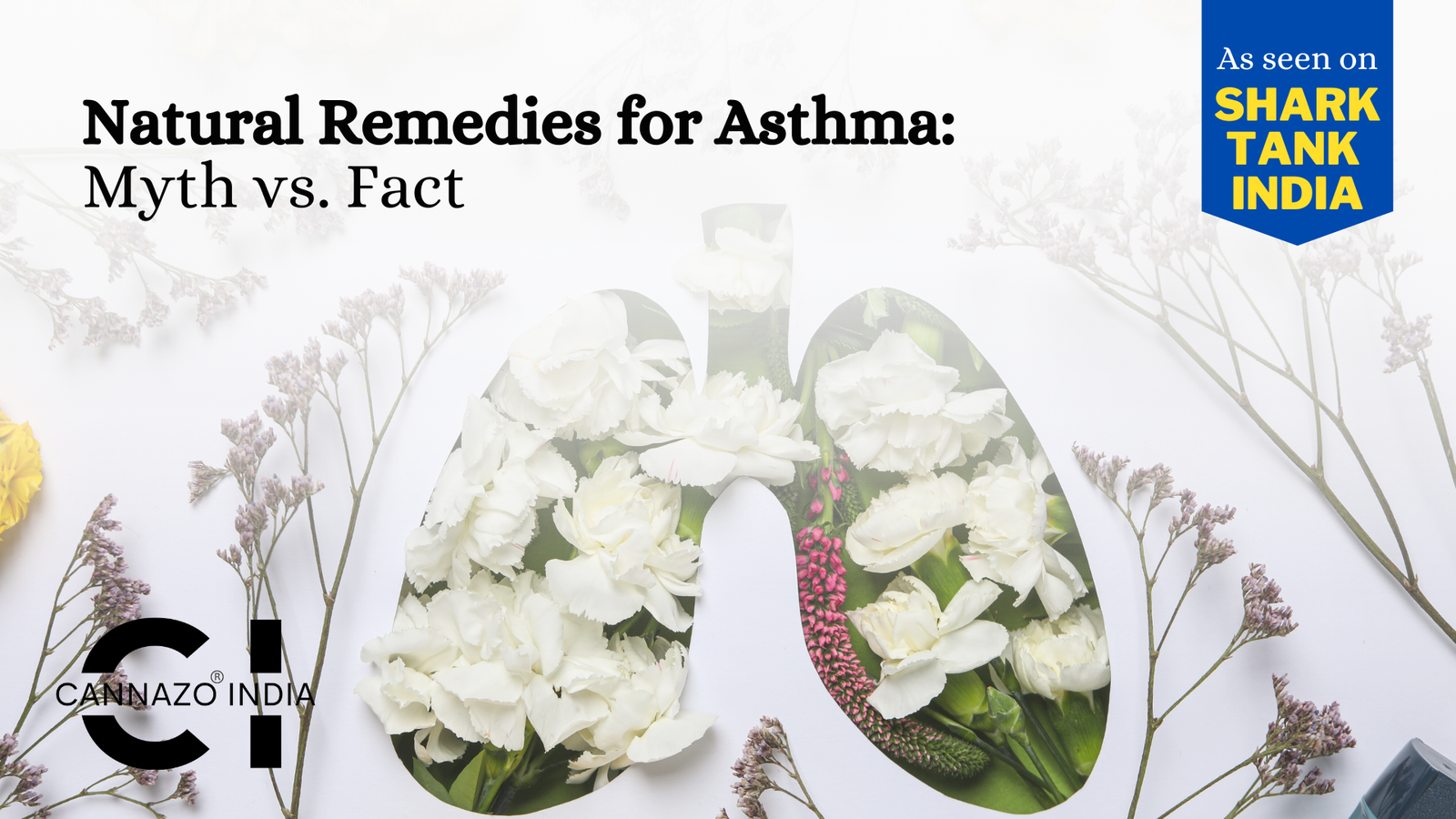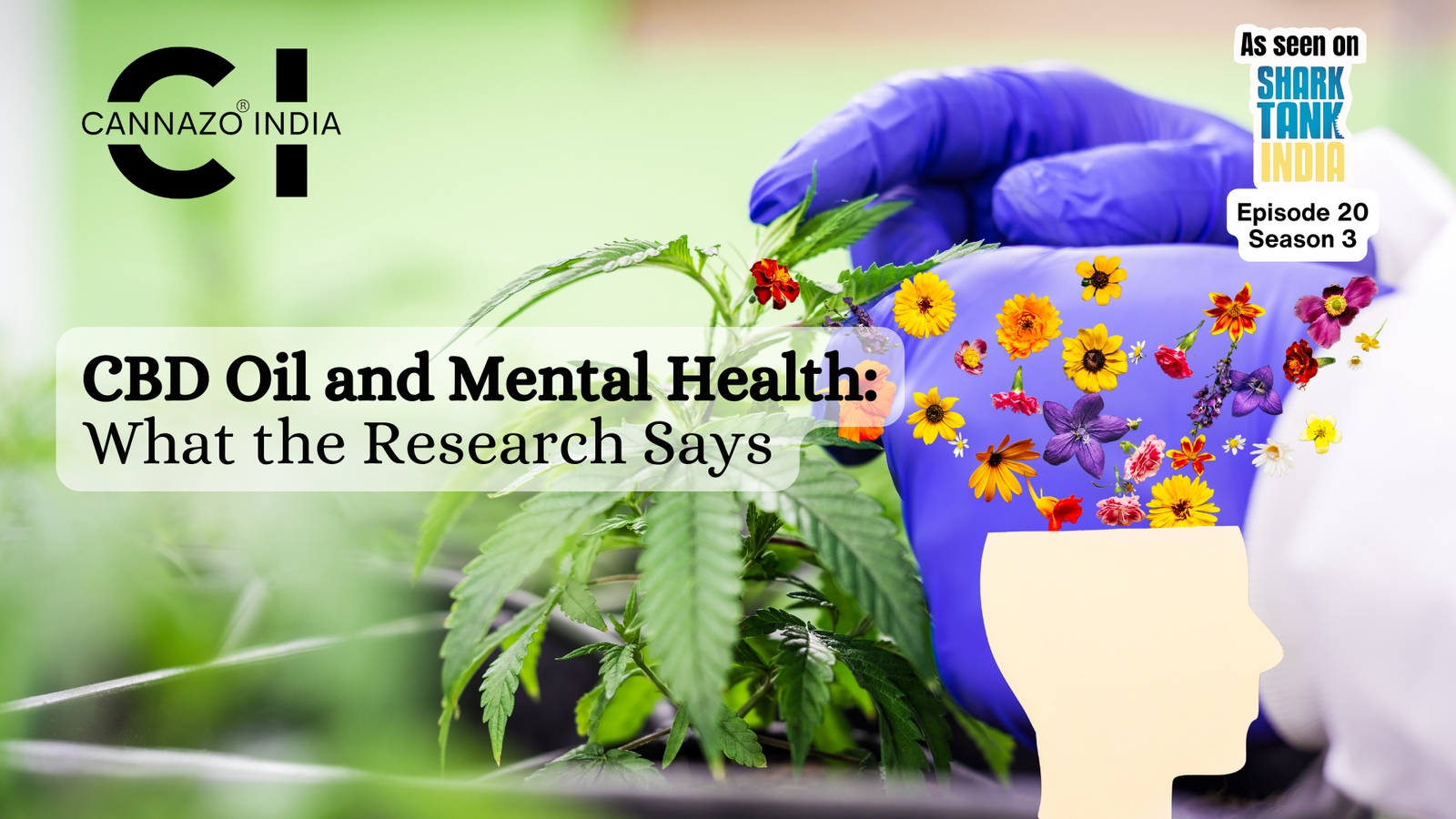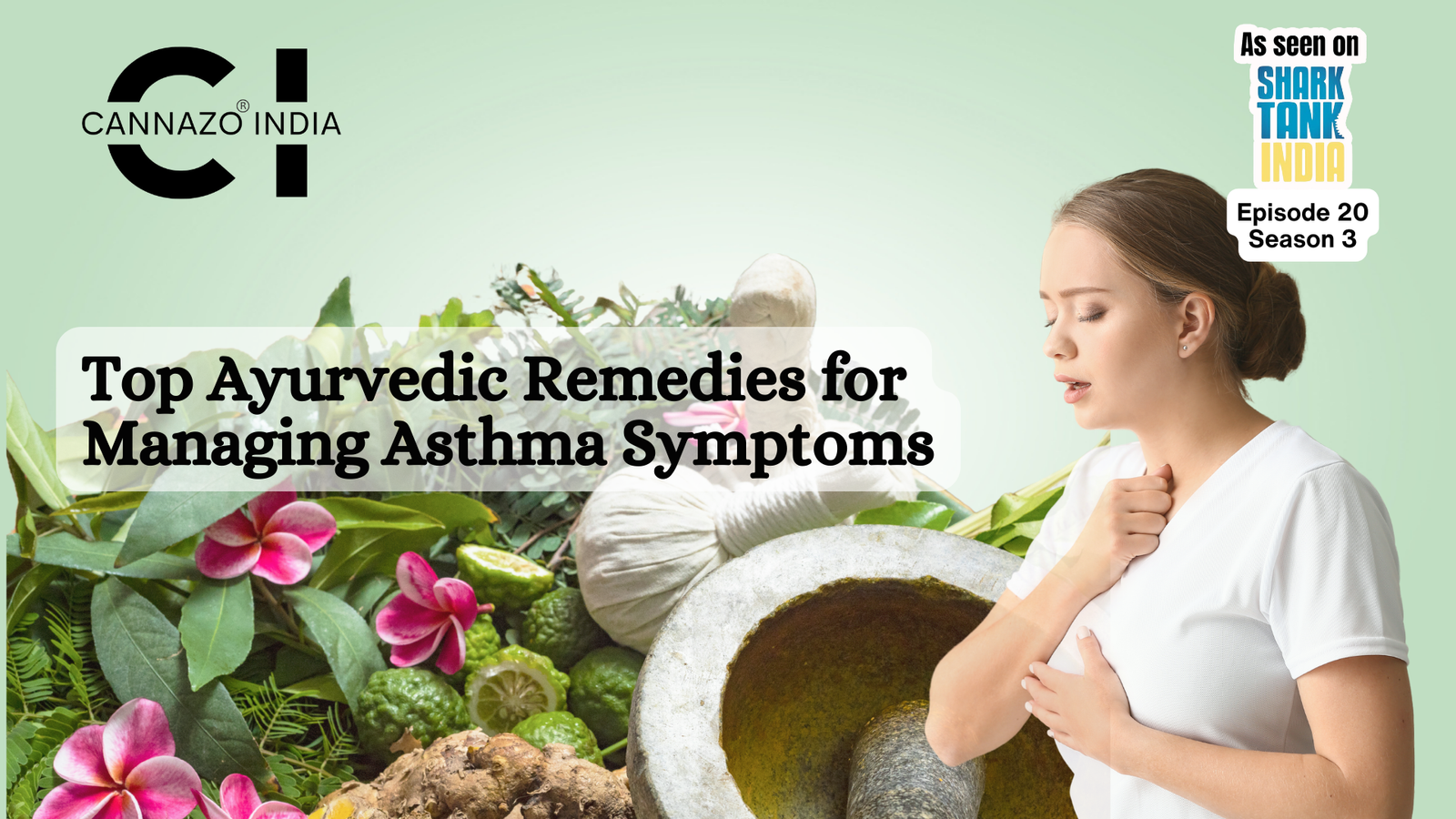Globally, around 300 million people live with asthma of varying severity. Since it is a chronic condition, it affects daily lifestyle and quality of life. Thus, knowing how to prevent asthma is important. This article gives you simple natural remedies for asthma management while busting the myths.
Understanding Asthma
Asthma is a chronic respiratory condition that is characterised by shortness of breath, inflammation in the lungs, and contraction of muscles surrounding the bronchioles. Due to inflammation, there is also excessive mucus production in the lungs which irritates the bronchiole lining. Common symptoms of asthma include:
- Wheezing
- Shortness of breath
- Chest tightness
- Excessive coughing
When understanding how to prevent asthma, it is first important to understand its cause. Asthma can be caused by various factors like:
- Viral infections: common asthma-causing viruses include coronavirus, rhinovirus (RV) and respiratory syncytial virus (RSV).
- Genetics: a family history of asthma can increase the likelihood of having asthma.
- Environmental factors: allergens, air pollution, cigarette smoke, etc. can trigger asthma.
For a person with asthma, to avoid asthma attacks, it is imperative to know how to prevent asthma triggers like:
- Allergens: indoor factors like mould, dust mites, pet dander and outdoor factors like pollen.
- Emotional stress: extreme emotions can trigger asthma.
- Physical activity: exercising can increase the likelihood of having an asthma attack.
- Air: cold air and poor air quality can irritate the bronchial lining and trigger an attack.
Common Myths About Asthma
Although it is important to know how to prevent asthma, it is equally important to identify misinformation and myths.
- Asthma patients should not exercise
Many people think that since exercise can trigger asthma, it should be avoided at all costs. Everyday exercise is important for everyone since it helps to avoid obesity and aids digestion. Exercising and asthma can go hand-in-hand with proper care and understanding of how much exercise can you do safely.
- Pets at home increase risk of asthma
Although pets can trigger asthma, research suggests that being exposed to pet dander and fur can instead decrease sensitivity to such allergens, thus decreasing the chances of an asthma attack.
- Daily products worsen asthma
Many people confuse milk allergy with an asthma allergy because of similar symptoms. Even some practitioners suggest using alternative dairy products to decrease the risk of asthma. However, asthma and dairy allergy are not linked unless they both occur together.
- Children can outgrow asthma
This myth is partly true. Children diagnosed with asthma can develop immunity to common allergens and triggers they have been exposed to, but this doesn’t mean that they won’t show any symptoms in adulthood. Mild symptoms can persist as they grow while the frequency of asthma attacks may decrease.
- Drugs can be stopped when a person feels fine
Since asthma is a chronic condition, you can’t stop taking asthma management drugs. Going off drugs when feeling fine or showing no symptoms will only aggravate their condition. When there are no symptoms, it is because of the drugs they take.
Natural Remedies for Asthma
Now that we have understood the myths of asthma, let’s explore some natural remedies and understand how to prevent asthma.
- Yoga
Research has shown that doing yoga along with routine medications can slightly improve the quality of life without causing any adverse events.
- Vitamins
Vitamins like C and E are potent antioxidants which also show anti-inflammatory properties. Consuming foods like oranges, grapefruit, broccoli and kale can relieve inflammation in the lungs.
- Full-spectrum CBD oil
CBD oil has shown to interact with the body’s endocannabinoid system which helps in decreasing inflammation in the muscles around the bronchioles, thus opening up the airways and making it easier to breathe. For purchase, use trusted brands like Cannazo India which is the only Indian company in this field to be featured on shark tank India season 3.
- Probiotics
Consuming probiotic-rich foods like yoghurt, kimchi, and sauerkraut have shown to improve inflammation by decreasing pro-inflammatory cytokines and decreasing allergic responses.
Tips for Asthma Management
The best way to prevent asthma is to try and combine everything:
- Avoid triggers: avoid dusty places and try to wear a mask when the air quality is low, if not everyday.
- Rectify myths: it is as important to be educated on the facts about asthma as it is to avoid asthma triggers.
- Take your prescribed medications regularly: use apps and reminders to keep track of your medicines so that symptoms are not severe.
- Integrate natural remedies: using natural remedies liek CBD oil along with your usual medicines can provide holistic care for your body.
Conclusion
Asthma is a chronic condition of the lungs which presents with inflammation, wheezing and breathing difficulties. It is important to stay alert about what is the truth and what isn’t, while also understanding how to prevent asthma using natural remedies along with your usual medications.
References
- Children’s Hospital of Philadelphia (n.d.). Asthma Myths and Facts. Asthma Myths and Facts. Retrieved June 1, 2024, from https://www.chop.edu/news/asthma-myths-and-facts
- Ciprandi, G., Tosca, M. A., & Drago, L. (2023). Probiotics in asthma management: fiction or truth?. Expert Review of Clinical Immunology, 19(5), 457-460.
- Cramer, H., Posadzki, P., Dobos, G., & Langhorst, J. (2014). Yoga for asthma: a systematic review and meta-analysis. Annals of Allergy, Asthma & Immunology, 112(6), 503-510.
- Dharmage, S. C., Perret, J. L., & Custovic, A. (2019). Epidemiology of asthma in children and adults. Frontiers in pediatrics, 7, 246.
- Martínez-Gimeno, A. (2009). Onions, myths, beliefs, fashion and reality in asthma. Allergologia et immunopathologia, 37(6), 309-313.
- Murphy, S., & Sharon, A. (2023, May 10). 14 Natural Ways to Help Treat Severe Asthma. 14 Natural Ways to Help Treat Severe Asthma. Retrieved June 1, 2024, from https://www.healthline.com/health/severe-asthma/natural-remedies#food
- National Heart, Lung, and Blood Institute (n.d.). Asthma Causes and Triggers. Asthma. Retrieved June 1, 2024, from https://www.nhlbi.nih.gov/health/asthma/causes
- Yang, Z. Y., Zhong, H. B., Mao, C., Yuan, J. Q., Huang, Y., Wu, X. Y., … & Tang, J. L. (2016). Yoga for asthma. Cochrane Database of Systematic Reviews, (4).
















































































































